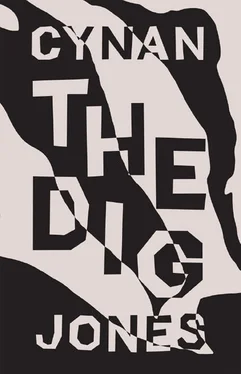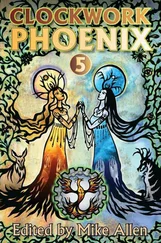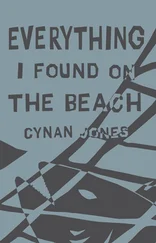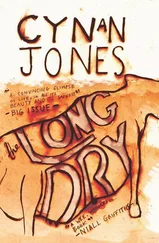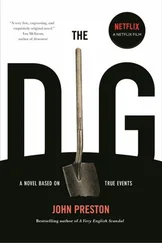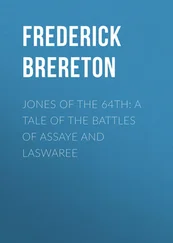He thought of the shard, lying there, a snapped bone. Something stricken. He wondered briefly again what it was. It worried him that there was no imagination in him. There was just a hollow, dead unknowing. Somewhere within him, the anger about the man coming onto his land.
He listened to the chainsaws he thought were from the manor farm at the base of the valley and heard the yapping of dogs, their strange sharp note. An adrenaline came up in him again. He had a sudden fear for her, a belief someone had touched her or was going to touch her and harm her again. It was inexplicable.

The big man stood at the entrance to the sett and stared as if he were following the tunnels along, assessing it.
He saw the heap of freshly scuffed soil and the drawn-out bedding outside the entrance. The sett was on a slope and looked to head deep in and there was much undergrowth and thin sycamore on the cover.
I’d need somebody else, he thought.
He went out a little from the entrance and found the dung pit that in the colder weather was often close to the sett this time of year. The fresh spores looked soft and muddy. In the mud around were scrapings and footprints and from their impress he knew it was a big full-grown boar. A sow would put up a better fight if she had cubs to defend, but there was something more competitive to the size of a big forty-pound boar.
On the nearby trees were the unhealed scars where the badgers had cleaned their claws and rubbed off the dirt from their coats.
That’s them, he thought. They’re here.
•
He followed the river back up from the woods and periodically took out a snare from his knapsack and laid it along the bank.
The water levels had dropped in the last month and the river was fringed with marsh marigold and he set the snares amongst it.
The mink were here now, annihilating the streams and watercourses. It was as well to be able to produce one if they were stopped. It was legal to hunt them, and it would explain the dogs.
When the big man got home he kenneled and fed the terriers and dressed the rat bites then went inside and made the calls.
He talked briefly and arranged that he would call if he got the badger. They wanted something heavy preferably, a real fighter. They wanted a spectacle. Then he called the other man whom he had worked with on the hunts and whom he knew had a good, big dog. He would need a big dog against the possibility of the boar.
It’s just a catch and release, the big man told him.
Can I bring my son? the man asked.

WHEN DANIEL CAME out of the shed his mother was there. He had not heard her arrive. She had come through the cows and carried the basket that was always on her elbow with the tea towel over it. She had aged quickly some years ago and then seemed to stop and looked now like she had for years. His father had changed differently. He had seemed to be always the same but then went old very suddenly, as if he had given in under a weight.
The basket on his mother’s arm gave Daniel a strange sort of locus; he could rarely remember her coming without it. She looked him over, was sensible enough not to judge him in the clothes he was in, and they walked back to the house.
“How’s Dad?” he asked.
“Still slow with things,” she said. The stroke had split him down one side like lightning hitting an old tree. “He’s angry for you,” she said.
Daniel nodded.
They went into the house. By the time he had taken off his boots and waterproofs and come into the kitchen she was cleaning up and the kettle was boiling. He felt a slight filial guilt.
He went over to the sink and cleaned his hands under the crashing hot water, a meringue of suds lifting out of the filling bowl. His mother emptied the basket of things, putting out a box of stew, a bara brith. A handful of small rolls.
“Do you want this loaf?” she asked.
“I’ve got the bread machine,” he said. They had bought that together. It was a thing of wonder to them. There was no false politeness.
“You’re not eating.”
There was nothing to clear. Just the scuffs of butter and crumbs off the plates some toast had been on, the odd bowl of cereal. A tinned pie was his one effort at hot food, and there was evidence of the tin.
She dumped the plates into the suds and made the tea. For years this had been her kitchen, the center of the place where most of the important things of her life had happened.
“Stew’s easy,” she said as she put down the tea. She knew she had to be careful with her son. “Dad sent you these,” she said.
She handed over a carrier bag of Farmers Weekly s, back issues his father had already read. He could see where his father had thumbed and bent the pages. He still subscribed to the magazine and, like most farmers, was more shrewd and politicized than you would think. That the carrier bag was already on the kitchen unit made it clear his mother had already been in the house but he didn’t mind. Even in his head it was still his parents’ farm, though the idea of ownership and of the possession of it occurred to him only obtusely. He had grown up here and belonged to it and it was not like some property external to him. He felt more possessive over his tractor.
He understood how it must have been difficult for his wife to come into the place, but she did so gently, without displacing anything. The bigger changes they seemed to make together, putting the shower in, painting the upstairs rooms. The house took her in just as the family had. She had come to play as a child and then there had been a long ten-year gap, but it was as if the house remembered her and accepted her in the way a dog might recall an old friend of its owner.
“How is it?” asked his mother.
“Steady,” he said. He began to tell her the counts and the small crises and the surprises and they talked for a while, the conversation shifting about like something in the wind being lifted and dropped, left for a while, lifted again.
His mother had a staid, farmhouse traditionalism. You could go abroad to an agricultural place and you would find the same taciturn dependability in the women there. You would be able to sit at their table and there would be the same ironic hospitality, and then they would unload cookery at you and you wouldn’t be able to move. If you were hurt, their responses would be nurse-like and unsympathetic but their remedies would work, and if you were to make one of them angry it would be a great and dangerous thing. They are like this because they have been charged for generations with keeping their men working, by feeding and repairing them, and there is no room for sentimentalism in that. You would not find kinder people, but their kindness would be in essential things and they would pour it on you.
But this sureness of purpose can only come from having a defined role and from not questioning it. It was certain to him that his mother had never questioned the role, but with that same conviction — age being a role in itself — she had adopted oldness when she assumed she should, rather than when her body told her to.
She had seemed to prematurely age, to adopt some strange outwardly witnessed notion of old people in the way teenagers put on some adulthood. There was no adjustment to the fact that eighty was not a rare age anymore, and that sixty was what forty used to be. She started to order elasticated trousers and strange shoes that made her look incongruously aged like teenagers look in grown-up clothes, and seemed to choose a stock phrase book of senior comments which she took to saying with a wistful acceptance; again, like a teenager trying to sound grown up.
Читать дальше
